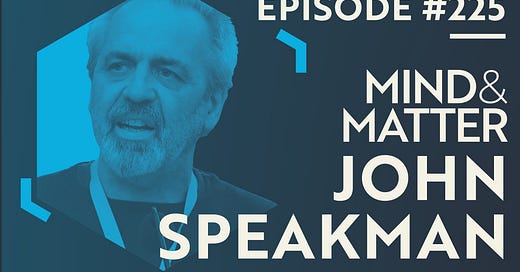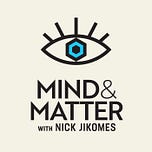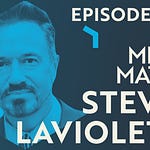Short Summary: The flaws of nutrition epidemiology with Dr. John Speakman
About the guest: John Speakman, PhD is a professor at the University of Aberdeen and runs a lab in Shenzhen, China, focusing on energy balance, obesity, and aging.
Note: Podcast episodes are fully available to paid subscribers on the M&M Substack and everyone on YouTube. Partial versions are available elsewhere. Transcript and other information on Substack.
Episode Summary: Dr. John Speakman explores the pitfalls of nutrition epidemiology, a field that links diet to health outcomes like cancer and obesity but often produces contradictory results. They discuss flawed methods like 24-hour recalls and food frequency questionnaires, which rely on memory and are prone to bias, and introduce Speakman’s new tool using doubly labeled water to screen implausible dietary data. The conversation highlights systematic biases, such as under-reporting by heavier individuals, and emerging technologies like photo diaries and AI for better dietary tracking.
Key Takeaways:
Nutrition epidemiology studies often contradict each other due to unreliable methods.
Common techniques like 24-hour recalls & food frequency questionnaires suffer from memory issues, portion size issues, and systematic biases, often underestimating food intake.
Heavier individuals (higher BMI) under-report food intake more, skewing associations between diet & obesity.
Speakman’s tool, based on 6,500 doubly labeled water measurements, predicts energy expenditure to flag implausible dietary survey data.
Emerging technologies, like smartphone photo diaries and AI food identification, promise more accurate dietary tracking than traditional surveys.
Randomized controlled trials, not surveys, provide the most reliable dietary insights; single-day intake surveys linked to outcomes years later are dubious.
Speakman advises ignoring most nutrition epidemiology headlines due to their inconsistency and lack of prognostic value for behavior change.
Related episode:
M&M #132: Obesity Epidemic, Diet, Metabolism, Saturated Fat vs. PUFAs, Energy Expenditure, Weight Gain & Feeding Behavior | John Speakman
*Not medical advice.
Support M&M if you find value in this content.
Episode transcript below.
Episode Chapters:
00:00:00 Intro
00:03:08 Nutrition Epidemiology Overview
00:08:12 Flaws in Dietary Recall Methods
00:14:42 Food Frequency Questionnaire Issues
00:20:12 Validation Problems in Studies
00:26:22 Basal Metabolic Rate Validation
00:32:10 Doubly Labeled Water Technique
00:38:20 New Predictive Tool for Surveys
00:43:41 Systematic Biases in Data
00:50:06 Improving Data with Red Flags
00:56:15 Emerging Technologies for Tracking
01:02:01 Advice on Nutrition Headlines
Full AI-generated transcript below. Beware of typos & mistranslations!
Listen to this episode with a 7-day free trial
Subscribe to Mind & Matter to listen to this post and get 7 days of free access to the full post archives.
















